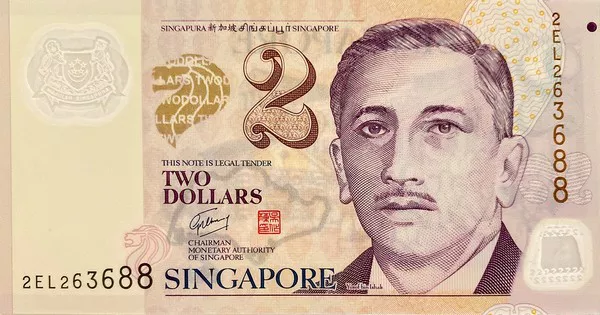As with any widely circulated currency, the Singapore dollar (SGD) is vulnerable to counterfeiting, posing risks to businesses, consumers, and the integrity of the financial system. To mitigate these risks, it’s essential to be able to distinguish between genuine SGD banknotes and counterfeit replicas. In this article, we provide a comprehensive guide on how to discern the difference between real and fake Singapore dollars, offering practical tips and security features to help safeguard against counterfeit currency.
Importance of Detecting Counterfeit Currency:
Counterfeit currency poses significant risks to businesses, financial institutions, and individuals, including financial losses, legal liabilities, and damage to reputation.
Detecting counterfeit Singapore dollars is essential for maintaining the integrity of transactions, protecting against fraud, and upholding confidence in the currency and the financial system.
Understanding Security Features:
The Monetary Authority of Singapore (MAS) incorporates multiple security features into SGD banknotes to deter counterfeiting and ensure authenticity.
Security features are designed to be easily identifiable by the public while remaining difficult to replicate by counterfeiters.
Key Security Features of SGD Banknotes:
A. Polymer Substrate:
SGD banknotes are printed on polymer substrate, a durable and resilient material that enhances resistance to wear and tear.
Polymer banknotes have a distinct feel and texture compared to paper-based currency, providing tactile feedback to users.
B. Portrait Watermark:
Each SGD banknote features a portrait watermark of the founding father of Singapore, Mr. Yusof Ishak, visible when held up to the light.
The watermark appears as a clear and distinct image embedded within the polymer substrate, serving as a primary security feature.
C. Security Thread:
A metallic security thread runs vertically through SGD banknotes, featuring microprinted text that can be seen under magnification.
The security thread is integrated into the polymer substrate and exhibits a unique reflective property when viewed at certain angles.
D. See-Through Register:
SGD banknotes include a see-through register, a feature that aligns perfectly when the note is held up to the light.
The see-through register consists of intricate patterns and elements that are difficult to reproduce with standard printing techniques.
E. Intaglio Printing:
Intaglio printing, a high-resolution printing technique, is used for the raised portions of SGD banknotes, such as the portrait, numerals, and motifs.
Intaglio printing produces sharp, crisp lines and tactile textures that are challenging for counterfeiters to replicate accurately.
F. Fluorescent Elements:
SGD banknotes contain fluorescent elements that fluoresce under ultraviolet (UV) light, emitting distinct colors or patterns.
UV features include fluorescent serial numbers, denominational indicators, and security threads that are visible only under UV light.
Conducting Basic Checks:
When handling SGD banknotes, individuals and businesses can perform basic checks to quickly assess authenticity.
These checks include examining the portrait watermark, security thread, see-through register, and intaglio printing under natural and UV light conditions.
Using Counterfeit Detection Devices:
Advanced counterfeit detection devices, such as UV lamps, magnifiers, and counterfeit detection pens, can aid in identifying counterfeit SGD banknotes.
UV lamps illuminate fluorescent elements present in genuine SGD banknotes, while magnifiers and pens help detect anomalies in paper, printing, and security features.
Educating Employees and the Public:
Businesses and financial institutions should provide training and resources to employees on how to detect counterfeit currency.
Public awareness campaigns and educational initiatives can help raise awareness among consumers and encourage vigilance when handling SGD banknotes.
Reporting Suspected Counterfeits:
Individuals who encounter suspected counterfeit SGD banknotes should report them to the authorities or the relevant financial institution.
Prompt reporting of counterfeit currency helps prevent its circulation and facilitates investigations by law enforcement agencies.
Collaboration and Cooperation:
Combating counterfeit currency requires collaboration and cooperation among government agencies, law enforcement authorities, financial institutions, and the public.
Information sharing, joint initiatives, and coordinated efforts enhance the effectiveness of counterfeit detection and prevention measures.
See Also: What Does Singapore Money Look Like?
Conclusion:
Detecting counterfeit Singapore dollars is essential for protecting businesses, consumers, and the integrity of the financial system.
By familiarizing themselves with the security features of SGD banknotes and adopting best practices in counterfeit detection, individuals and businesses can minimize the risks associated with counterfeit currency.
Continued vigilance, education, and collaboration are key to safeguarding against the proliferation of counterfeit currency and preserving trust in the Singapore dollar.


